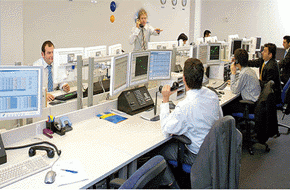
by Kymberly Martin
NZ Dollar
The NZD/USD has traded a remarkably tight range over the past 24-hours, despite large moves across the Tasman. It again sits close to 0.8480 this morning.
With the absence of key domestic developments yesterday the NZD/USD appeared happy to consolidate after its July falls.
However, more striking was the move on the NZD/AUD cross. It gapped abruptly higher after the release of the AU employment report yesterday afternoon.
From 0.9060, the cross was catapulted to 0.9100, continuing to climb higher overnight. It sits at 0.9140 currently. We would look for a return toward 0.9250 in the first instance, within our broader view the cross will trade a 0.9100-0.9400 range to year-end.
The NZD sits a little higher relative to its key European peers after the ECB and BoE remained ‘on hold’ at their respective meetings last night. Subsequent commentary from ECB President Draghi helped inspire a weaker EUR. The NZD/EUR has pushed up from 0.6320 to trade above 0.6340 this morning.
Today, Finance Minister, English is scheduled to speak in Hamilton. There is always potential for a snipe at the currency. However, in the absence of other scheduled domestic events the NZD/USD looks to consolidate further. NZD/USD support remains at the early-June lows of 0.8400. Resistance is eyed at 0.8520.
To subscribe to our free daily Currency Rate Sheet and News email, enter your email address here.
----------------------------------------------------------
Majors
The AUD has been the weakest performer over the past 24-hours. The USD sits a little higher this morning.
Market sentiment remained fairly subdued overnight as Ukraine headlines continue to permeate news flow. Russia has announced an array of bans on food imports from the West.
Meanwhile NATO warned Russia against sending its amassing troops across the border, into Ukraine. Equity markets recorded losses on either side of the Atlantic. The Euro Stoxx 50 is down 1.2% while the S&P500 has fallen 0.4%. In this backdrop the USD strengthened modestly and the ‘safe haven’ JPY continues to outperform. The USD/JPY sits at 102.00 this morning.
The EUR/USD started the evening on the back foot after disappointing June German industrial production figures (0.3%m/m/ vs. 1.2% expected).
Later, the ECB left policy unchanged as expected. However, in commentary, ECB President Draghi sounded more down-beat on the economic outlook, leaving the door open for further stimulus measures. He said the Bank is about to consult on the purchase of Asset Back Securities. From above 1.3390 the EUR/USD hit intra-night lows below 1.3340, before clawing its way back to 1.3360 currently.
The most noteworthy move in currencies has come from the AUD. It gapped lower early yesterday afternoon after the release of the AU employment report. The AU unemployment rate surged to 6.4% in July from 6.0% in June, although part of the rise was due to changes to the way the statistics are collated.
Still, this nuance was overlooked as the AUD/USD gapped from 0.9350 to 0.9300, before stabilising overnight at 0.9270. The next band of strong support for the AUD/USD lies just above 0.9200.
Today the RBA will release its Statement on Monetary Policy and China will release its trade balance. The Bank of Japan is also scheduled to meet. Tonight, UK and German trade balance data will be released along with the Canadian employment report.
We welcome your comments below. If you are not already registered, please register to comment
Remember we welcome robust, respectful and insightful debate. We don't welcome abusive or defamatory comments and will de-register those repeatedly making such comments. Our current comment policy is here.